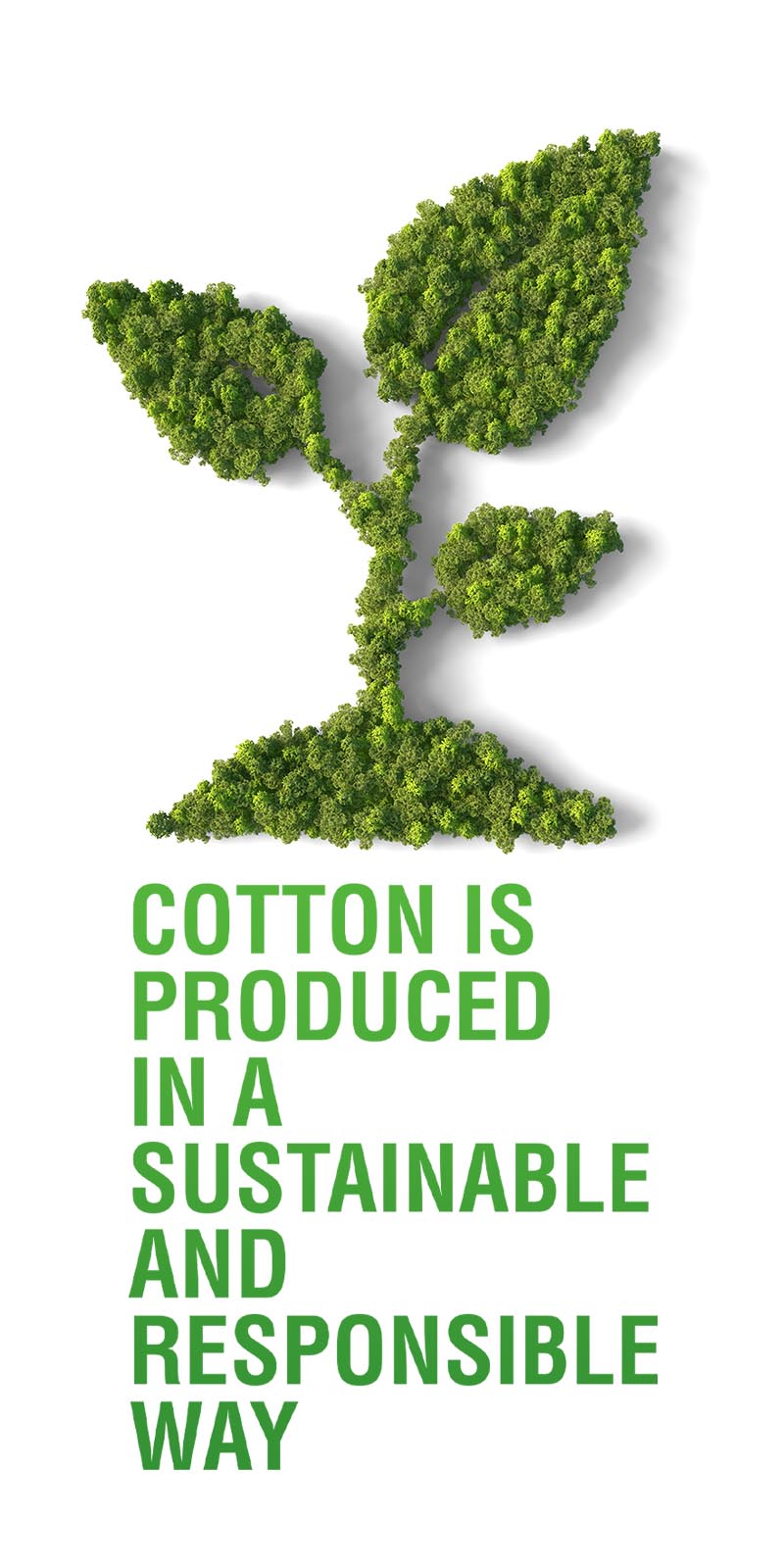Environmental Sustainability
EUROPEAN COTTON DESIGNS A SUSTAINABLE WORLD


This strong commitment of the European cotton sector to sustainability responds not only to the growing global concern about the environmental impact of all human actions, nor only to consumer demand for environmentally friendly products. It responds to the industry’s firm beliefs and convictions that designing a more sustainable world is possible.
But how do we do it? In addition to making more responsible use of natural resources, and reducing the use of chemicals, European cotton contributes to designing a more sustainable world in many ways:
European cotton is GMO-free
It is grown from non-GMO seeds using sustainable agricultural practices.
Cotton cultivation contributes to reducing global warming
During the hottest months of the year, thanks to its large leaf area.
Cotton cultivation contributes oxygen to the atmosphere
And produces three times less greenhouse gases than the production of synthetic Fibres such as polyester.
Natural Fibres, such as European cotton, are 100% biodegradable
Making them the perfect eco-friendly choice.
All this places European cotton, of Greek and Spanish origin, as a global benchmark in terms of sustainability.
Therefore, when you choose European cotton, you are supporting a sustainable production model, based on the most ethical and environmentally friendly practices.
